Fix: File Explorer Slow, Lagging and Freezing in Windows 11
If File Explorer is becoming increasingly slower on your Windows 11 computer, the problem is most likely occurring due to a cache issue. This widespread issue causes the application to work slowly, lag, and hang during undemanding tasks. Affected users report that they are unable to open files because the loading screen takes a long time or doesn’t load at all. This issue is specific to the latest Windows 11 builds.

The most common reasons why this happens include a cache issue, a scenario in which the Quick Access menu has too many pinned folders, or a situation where interference is caused by a series of Office applications.
Here are a few confirmed methods that should help you fix the general slowness of File Explorer:
1. Restart your computer.
If you are just beginning to troubleshoot this issue, start with a simple restart. File Explorer might run slowly simply because you have the habit of putting your PC to sleep instead of shutting it down.
This is not a problem for configurations with lots of available RAM, but it is frequent for configurations using less than 8 GB of RAM.
A simple restart of the computer should be enough to eliminate all these problems that are affecting it.
To do it, open the Start menu and click on the Power button.
Click on the Restart button and let your computer reboot completely.
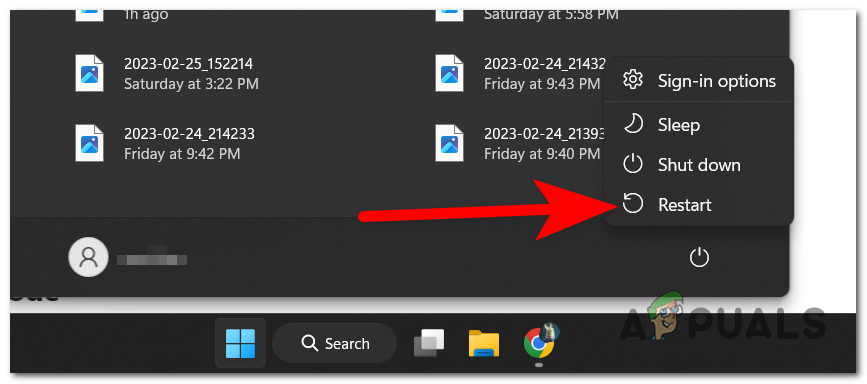
Once it boots back, open File Explorer to see if it still runs slowly.
2. Use the fullscreen mode.
You can also enter Fullscreen mode when using File Explorer to remediate this issue. Some background apps might affect the app, causing lag problems.
Note: When you open File Explorer in full-screen mode, the PC will dedicate additional resources to the app that is put in focus mode. This is helpful if you are doing something resource-consuming in File Explorer and you are looking for that extra boost.
When you open File Explorer, press the F11 key to enter Fullscreen mode.
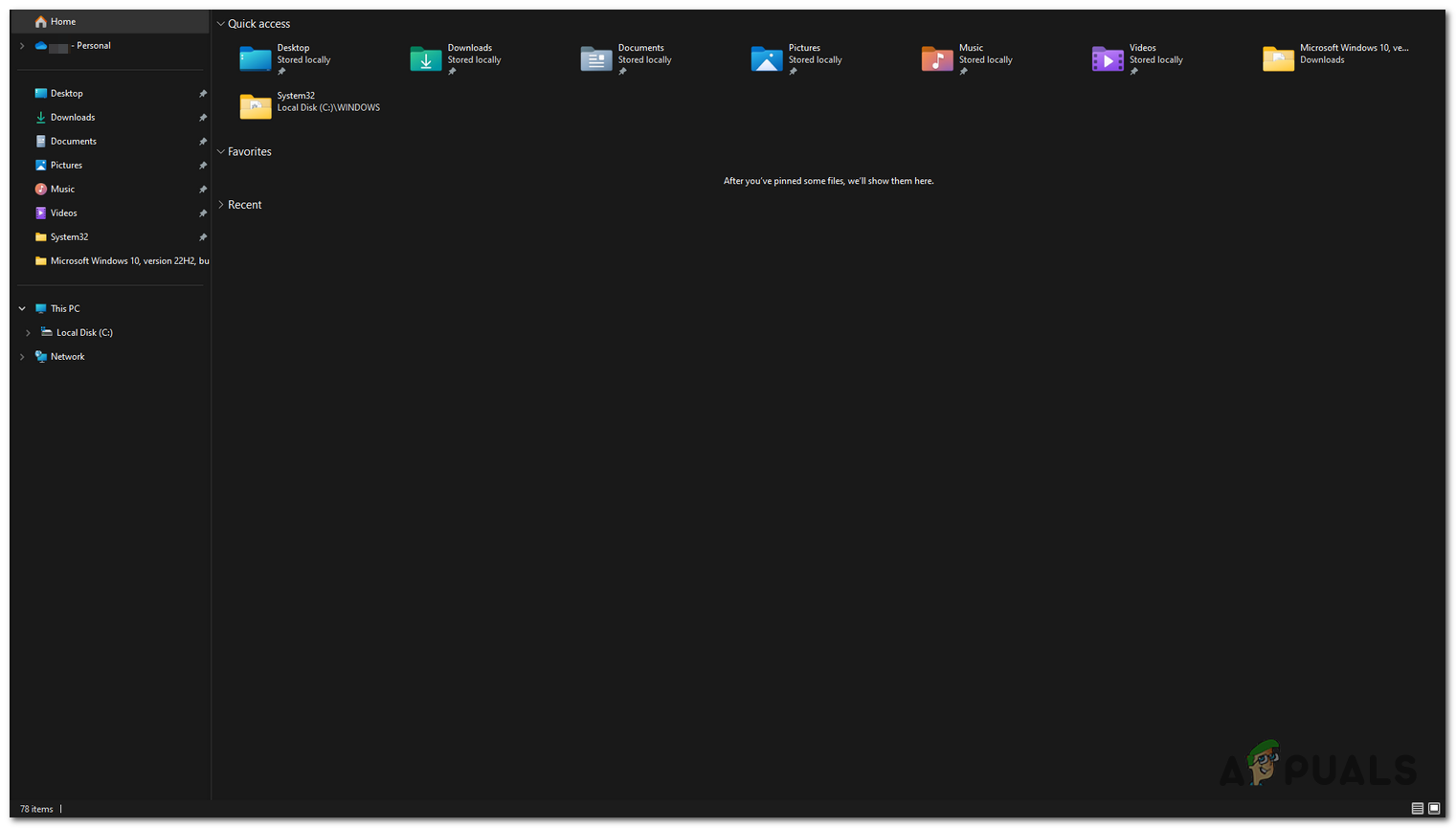
Now continue the operation that was previously slowing down your PC and see if the issue has improved.
3. Disable the ‘Show files from Office.com’ option.
File Explorer might be affected by a setting enabled within the Folder Options. This setting allows File Explorer to display all Office files, which could be the cause of this issue.
Note: This could affect File Explorer even if you don’t have any Office files.
Access the Folder Options and disable it in the Privacy section. See if this improves the app’s performance.
Here’s how you can do it:
- Open File Explorer and click on the See more (three dots) button located on the top right side.
- Click on the Options button to open Folder Options.
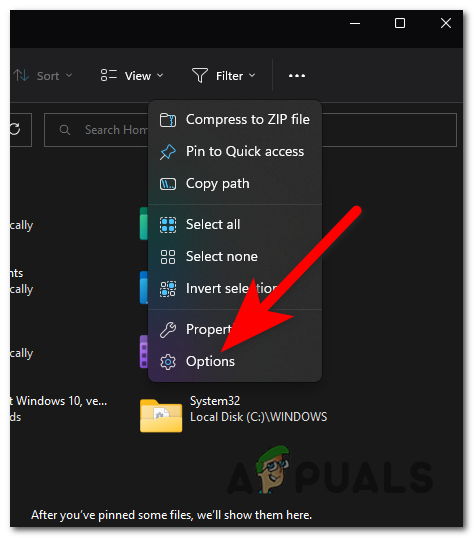
Opening the Options Folder - Find the Show files from Office.com option and disable it.
- Click on Apply to save the changes.
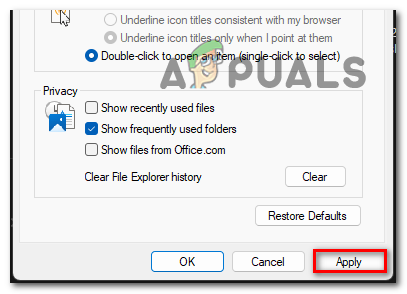
Applying the changes - Click on OK to close the Options.
- Restart File Explorer, then test it to see iff it still works slowly.
4. Remove the Quick Access shortcuts.
The Quick Access menu may affect File Explorer if there is a larger number of folders pinned down. A greater number of folders could slow the app down.
You can go to the Folder Options and disable two options that will prevent any new folder from appearing in the Quick Access and Recent folders.
Here’s how you can do it:
- Inside the File Explorer, expand the See more menu and select the Options button.
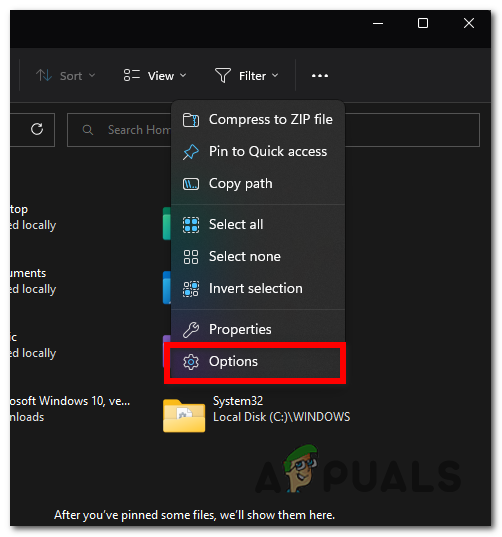
Selecting the Options button - Now go to the Show recently used files option and uncheck the box associated with it.
- Repeat the process with the other option name Show frequently used folders
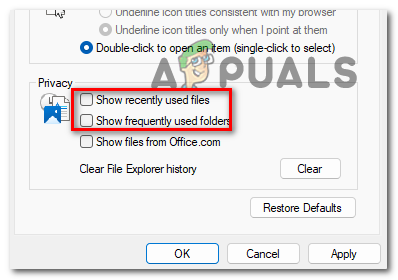
Disabling the Quick Access shortcut - Click on Apply to save the changes and OK to close the Folder Options.
- Use File Explorer to see if the error has been fixed.
5. Clear the history.
The slow performance of your Windows 11 File Explorer might also be caused by its history. Clearing all the files from the Recent and Quick Access folders within File Explorer should help.
All you need to do is go to the Folder Options, and you will see the option. Click on it, and the files will be deleted right away.
Here is how you can do this:
- From the File Explorer’s main menu, open the ‘See more‘ menu and choose the ‘Options‘ setting.
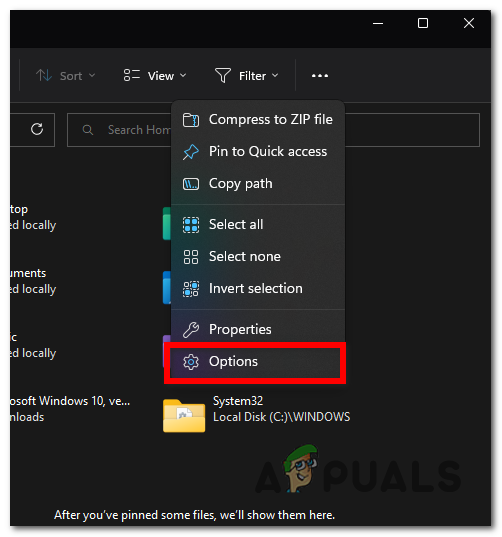
Opening the Folder Options - Go to the Privacy settings and click on the Clear button.
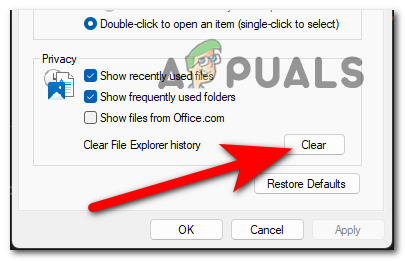
Clearing the File Explorer history - Close the Folder Options and restart File Explorer.
- Now test to see if the error still appears.





